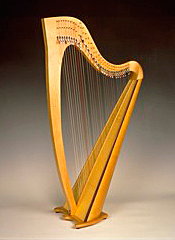
This week’s Tehillim is l’ilui nishmat Zelda bat Shoshana
This Psalm is well known as the one we sing both on Friday night as a prequel to Lecha Dodi, and on Shabbat mornings when we accompany the Sefer Torah back to the Ark. We will now try to discover the reasons we sing these words so joyously. Firstly, this Psalm is a lot more meaningful than is generally realised. In the course of these verses, the name of Hashem is mentioned 18 times, and for this reason, the men of the Great Assembly, who put our prayers into the set format that we have today, instituted the 18 blessings of the Amidah.
This Psalm starts off by describing the Jewish people as the ‘bnei eilim’ the sons of the powerful. This description refers to our forefathers, Abraham, Isaac and Jacob, who were all powerful men, full of righteousness. Hashem’s power and glory pervade all of creation, and the entire world functions according to His will, as a glance through history will easily reveal. If we recall how Hashem split the waters for Moses and stopped the sun setting for Joshua, we can already see how Hashem controls each and every aspect of nature. There are of course countless other examples throughout history.
Continuing the Psalm, Hashem’s voice is described in several different ways:
‘The voice of Hashem is on the waters,
the voice of Hashem comes in power,
the voice of Hashem comes in majesty,
the voice of Hashem breaks the cedars,
the voice of Hashem cleaves with flames of fire,
the voice of Hashem convulses the wilderness,
the voice of Hashem frightens the deer, and strips the forests bare.’
These are all very powerfully emotive descriptions of what Hashem is capable of doing, especially to his enemies. When Hashem gave us the Ten Commandments, the words sprang forth from His mouth like fire, so much so that the people could not bear it and asked for Moses to speak to them on Hashem’s behalf. In the future, when Mashiach comes, nations that once stood proud, upright and unflinching like the deer, will be made to tremble by His judgement.
It is now clear to see why this Psalm evokes so much song each Shabbat, as it is full of descriptions of sound! May we all merit to deserve the Blessing of peace in the last verse of this Psalm; ‘Hashem oz l’amo yitein, Hashem yevarech et amo vashalom’ Hashem will give strength to His nation, Hashem will bless His nation with peace.’
To sponsor a Tehillim for £54 call 0203 906 8488 or email
office@thejewishweekly.com









